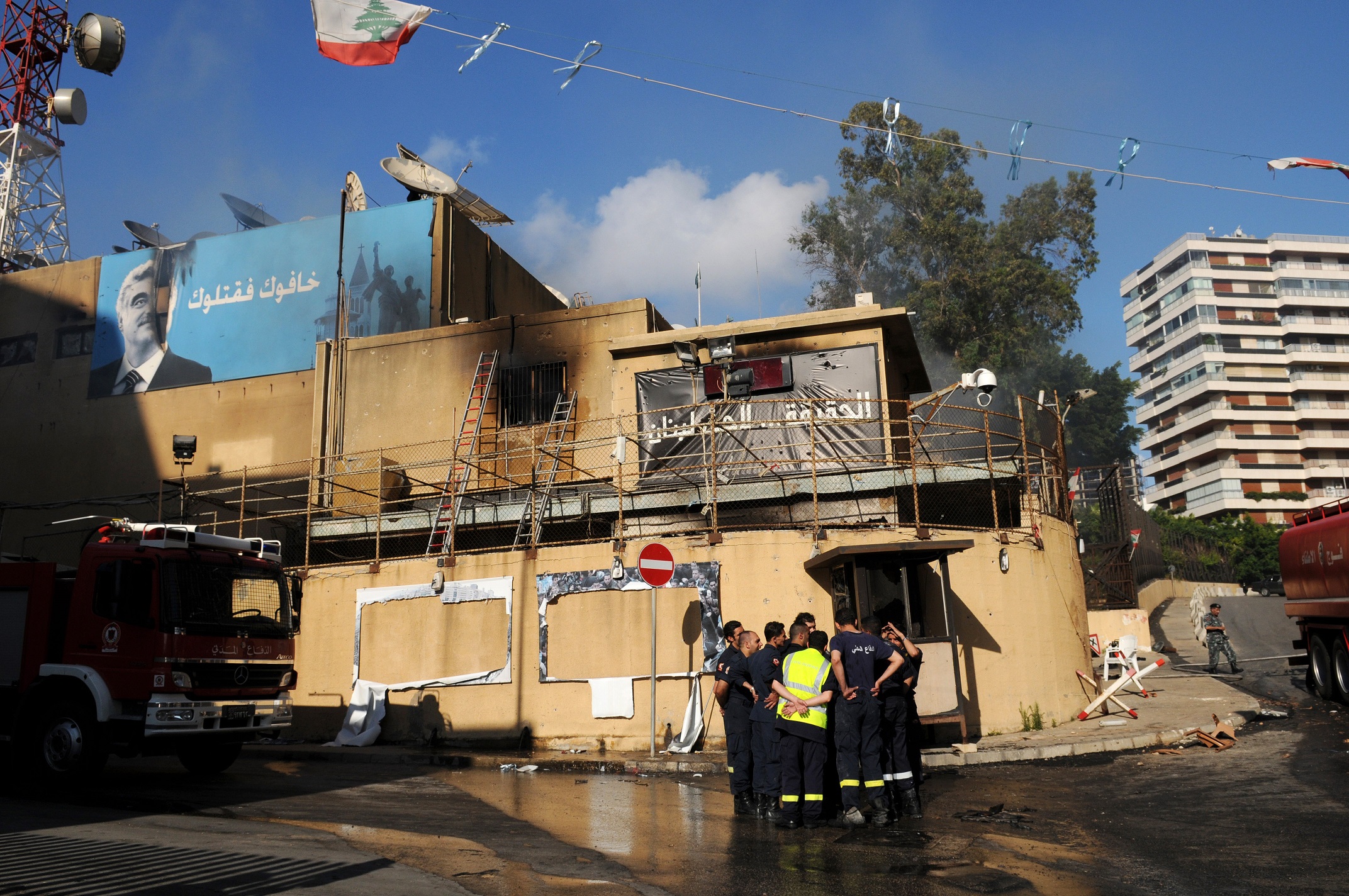بعد 26 عاما على انطلاقتها، أقفلت شاشة "المستقبل" اللبنانية وأسدلت الستار على إمبراطورية إعلامية أسسها رئيس الحكومة اللبناني الراحل رفيق الحريري، ليفقد هيكل الإعلام اللبناني أحد أبرز أعمدته.
من بيروت، خرجت قناة "المستقبل" عام 1993 من تحت ركام الحرب الأهلية اللبنانية، فكان حضورها تحدّيًا للأوضاع الصعبة التي كانت تمر بها البلاد، فحملت رسائل الوحدة وبثت روحا جديدة في بيوت جميع اللبنانيين.
ساهمت القناة في رسم صورة جديدة للإعلام اللبناني، وحجزت له مقعدا بين أهم الوسائل الإعلامية العربية، وشكّلت عماد الحقبة الذهبية للإعلام اللبناني.
ومع اغتيال الحريري عام 2005، دخلت "المستقبل" في نفق أسود. ومع ما تبع الاغتيال من أحداث سياسية وأمنية صعبة، صمدت القناة رغم إحراق مبنى الروشة الخاص بها عام 2008.
بداية الأزمة المالية كانت في العام 2013، وسرعان ما تفاقمت لتشتد في العام 2017، ليعلن الموظفون في أغسطس/آب 2019 إضرابهم عن العمل ووقف نشرات الأخبار والبرامج السياسية والعامة، بعدما تقطّعت بهم السبل، اعتراضًا على نكث الإدارة وعودها حول تسديد مستحقاتهم المالية المتراكمة، لتنتهي القناة إلى النفق المسدود مرة أخرى.
ومع إعلان رئيس الحكومة وقتها سعد الحريري تعليق العمل في القناة وتصفية حقوق العاملين والعاملات، طويت صفحة أساسية من تاريخ الإعلام المرئي اللبناني.
قد تكون أزمة قناة "المستقبل" هي الأبرز في المشهد الإعلامي، ولكنها بالتأكيد ليست الوحيدة، بل إن سلسلة من الضربات تلقاها قطاع الإعلام أدّت إلى تنفيذ خطط لإعادة الهيكلة.
الإعلام التقليدي "يغرق"
أما بالنسبة إلى صحيفة "المستقبل" المملوكة لرئيس الحكومة السابق سعد الحريري، فتحوّلت إلى موقع إلكتروني باسم "المستقبل ويب". وبدورها، أعلنت قناة "القدس" الفلسطينية توقفها رسميا عن العمل، وإغلاق مكاتبها في لبنان وقطاع غزة، بسبب الأزمة المالية التي تعصف بها، والتي حالت دون استمرارها في أداء رسالتها الإعلامية، وهو ما زج بالعاملين فيها في قائمة العاطلين عن العمل بعدما عانوا على مدى أشهر طويلة من عدم صرف رواتبهم بفعل الديون التي أثقلت كاهل القناة.
كما أدّت الأزمة قبل ذلك إلى إقفال عدد من الصحف مثل صحيفة "السفير"، بالإضافة إلى مكتب صحيفة "الحياة" الرئيسي في بيروت، وسرحت صحيفة "النهار" عددا كبيرا من موظفيها، وأقفلت مؤسسة "الصياد" التي تُصدر صحيفة "الأنوار" وغيرها من المجلات التي استسلمت.
مظاهر الأزمة ليست جديدة على الشاشات وعلى الصحف كذلك، فقد بدأت مع تدهور الأوضاع في الدول العربية المجاورة قبل سنوات، إلا أن الأسباب المالية كانت أهم العوامل التي عمقت "المجزرة الجماعية" بحق منظومة الإعلام في لبنان. ذلك أن الدول التي كانت تدعمه بحثا عن خدمة أجندتها، استغنت عن جزء كبير من الدعم المالي، فكان طبيعيا بعد ذلك أن تغرق في الأزمات المالية المتتالية.
ويمكن قراءة هذا التحول بكون تلك الدول لم تعد تحتاج إلى وسائل إعلام لبنانية لتمرير رسائلها، فصارت تعمد مباشرة إلى تمويل وسائل خاصة بها، فضلا عن تراجع سوق الإعلانات التي تأثرت بالأزمة السياسية والاقتصادية التي تعيشها البلاد. وهذا التراجع سبّب انكماشا إعلانيا انعكس على الإعلام.
بصيغة أخرى، فإن تراجع النمو الاقتصادي في البلاد، كان وراء كساد سوق الإعلانات بشكل مباشر.
ويخشى الإعلاميون تردي مهنة الصحافة وتراجع معاييرها على نحو قد يطيح بالصحافة اللبنانية التي شكلت مدرسة من مدارس الصحافة العربية في العقود الأخيرة. ولعل أكبر هذه المخاوف يأتي من الصحافة الإلكترونية التي باتت تهدد وسائل الإعلام التقليدية بالانقراض.
هواجس عالمية
هواجس انقراض الصحافة المكتوبة وتراجع جزء من الإعلام التقليدي على وجه الخصوص، ليست عربية خالصة، فقد شهدنا توقف عدد من الصحف العالمية عن الصدور، ومؤخرًا كانت صحيفة "الإكسبرس" الأميركية الشهيرة تودع قراءها بعنوان "نتمنى أن تستمتعوا بهواتفكم الحقيرة".
لقد دخلنا منذ زمن، عصر صحافة الهواتف حيث تحول كل من يحمل هاتفا محمولا إلى مراسل وصحفي يمكن أن يوثّق ويقدم للقارئ -القريب والبعيد- المعلومة بسرعة كبيرة، وصار مؤسسة إعلامية فردية مؤثرة، وقد يحقق أرباحا مقابل الإعلانات التي يضعها على حسابه. لذلك، من المفهوم أن تنشئ وسائل الإعلام حسابات على مواقع التواصل الاجتماعي للتعامل مع التغيير الهائل في أساليب التغطية والتأثير الإعلامي.
هي غيمة سوداء تخيّم على كل المحطات المحلية تقريبا، ولا يبدو أنها ستشهد انفراجات مالية وشيكة! وهو ما دفع نقابة محرري الصحافة اللبنانية إلى تنظيم اعتصام في أغسطس/آب الماضي احتجاجا على الإهمال الرسمي لهذا القطاع وإغفال مطالبه.
ومع إطلاق لبنان صفارات الإنذار بالإعلان عن دخول البلاد في حالة طوارئ اقتصادية لمواجهة آثارها، لم يكن أمام الإعلاميين إلا أن يخرجوا بمبادرة لإطلاق نقابة صحافة بديلة عن النقابة الحالية، تدافع عن حقوقهم وتحد من الأزمة التي تعصف بالإعلام في لبنان.
* الصورة: صلاح ملكاوي - غيتي
















![Palestinian journalists attempt to connect to the internet using their phones in Rafah on the southern Gaza Strip. [Said Khatib/AFP]](/sites/default/files/ajr/2025/34962UB-highres-1705225575%20Large.jpeg)
























